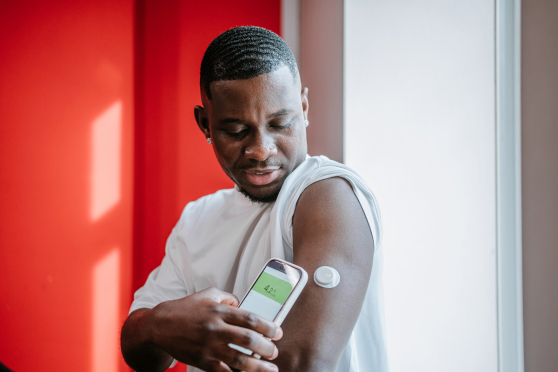LASIK and travel: The perfect pair
Thinking about getting laser vision correction surgery? One big advantage could be making a person’s next trip a winner.

If a person wears glasses or contact lenses, traveling can sometimes be a challenge. They might have to figure out how to pack or carry their glasses without breaking them. They might also make things like swimming or scuba diving harder.
Contact lenses can also create their own list of travel worries. A person will have to remember to bring enough pairs of contacts for the duration of the trip. Also, what happens if they lose their contacts?
LASIK surgery, also known as laser vision correction surgery, could be a solution. It can correct a person’s vision to 20/20 (normal vision) or 20/40 (close to normal vision). About 9 in 10 people who get LASIK don’t need glasses or contact lenses anymore, according to the American Academy of Ophthalmology.1
What are some of the ways LASIK surgery can make traveling easier? Find out.
Could LASIK be right for you? Schedule a free exam today.
What is LASIK surgery?
LASIK stands for laser-assisted in situ keratomileusis. It's a type of laser eye surgery that can fix common vision problems. These could include:1
- Nearsightedness (objects appear blurry at a distance)
- Farsightedness (objects appear blurry up close)
- Astigmatism (objects appear blurry at a distance or up close)
During the procedure, a laser is used to change the shape of the cornea, the clear dome-shaped layer at the front of the eye. This improves the way the eye focuses light, lowering the need for glasses or contact lenses.1
For most, normal vision may return in 1 or 2 days. But for some people, it may take up to 3 to 6 months.2
How soon can a person travel after they’ve had LASIK surgery?
Right after surgery, a person will want to rest and relax. Their eyes might feel like they’re itchy and burning. They may need to take a pain reliever. They may also have to wear protective shields on their eyes while they’re sleeping.3
A person will also want to wait to do the following travel-related activities after LASIK surgery:4
- No watching TV, reading or using a computer for 5 to 6 hours.
- No driving for at least 12 hours.
- No wearing eye makeup for at least 1 week.
- No contact/impact sports for 2 to 4 weeks. Golf and gentle exercise, like jogging, may be fine a few days after surgery. But it’s good to talk with an eye care provider first.
- No swimming, hot tub, sauna or steam bathing for 4 weeks.
While it’s safe to travel just a day after LASIK surgery, it may not be worthwhile until a person can do the above activities.5 It’s also a good idea to talk to an eye care provider. They may know when it’s safest to travel or do vacation-related activities, based on a person’s vision history.
How can LASIK surgery make it easier for a person to travel?
A person may not have to use their glasses or contact lenses after LASIK surgery. It can make their travel experience easier in several ways. These include:
1. Simplify packing. If a person no longer needs glasses or contact lenses, they won’t need to bring them. That could also include things like:
- Boxes of daily, weekly or monthly contact lenses
- Contact lens solution and case
- Soft or hard glasses case and lens-cleaning solution
This will make a person’s travel bag or suitcase lighter.
2. Lessen the chance of getting dry eye. For contact-lens wearers, long flights can lead to dry eye. That can make a trip less comfortable.6 (It’s worth noting that LASIK surgery may also cause dry eye — and people with severe dry eye may not be good candidates for the surgery.1)
3. Make outdoor activities easier. A person will not have to worry about their glasses or contacts breaking while doing fun activities like:
- Basketball, baseball, football or hockey
- Hiking or jogging
- Running long distances (like a 10k or marathon)
- Scuba-diving or snorkeling
- Skiing or snowboarding
4. Save on sunglasses. People will no longer need glasses or contact lenses. They will also no longer need prescription sunglasses. Forget to pack sunglasses for a trip? A person could simply buy a cheaper pair of over-the-counter sunglasses.
How can a person get LASIK surgery?
Vision insurance typically doesn't cover LASIK surgery. It’s often considered an “elective” procedure. That means LASIK isn’t correcting a vision issue that’s medically necessary.
Also, LASIK isn’t right for everybody. A person will want to schedule an appointment with their eye care provider before they decide on surgery.
Let’s say a person’s eye care provider tells them they can get LASIK surgery. UnitedHealthcare Vision members can get a free eye exam and potentially save 20% to 35% on surgery through QualSight LASIK.
Sources:
- LASIK — laser eye surgery American Academy of Ophthalmology, August 2024
- LASIK eye surgery Medline Plus, January 2024
- LASIK eye surgery Mayo Clinic, August 2023
- Laser vision correction: Instructions before and after surgery Columbia University Irving Medical Center
- Laser vision correction FAQs UCLA Health,
- Why does air travel cause dry eyes Optometrists Network


